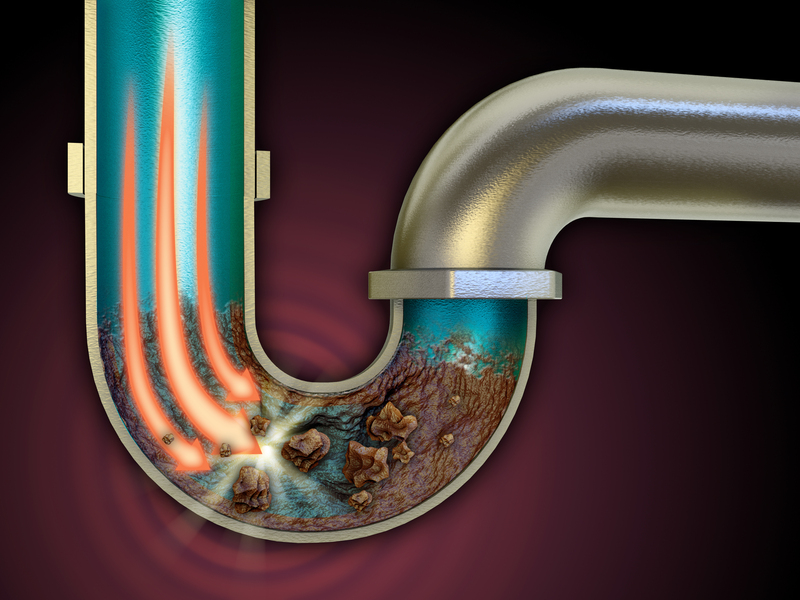Effective Strategies for Eliminating Damp Smell
Posted on 19/08/2025
Effective Strategies for Eliminating Damp Smell
The musty odor of dampness is a problem that plagues many households. These unpleasant smells not only diminish the comfort of your home but may also signal underlying issues, such as excess humidity or mold. If you're searching for effective ways to remove damp smell from your living spaces, this comprehensive guide will provide proven solutions, valuable insights, and preventative techniques.
Understanding the Source of Damp Odors
Before you can successfully eliminate damp smells, it's crucial to address the source. Most damp odors arise from mold, mildew, stagnant water, or high humidity. These conditions develop in basements, bathrooms, kitchens, laundry rooms, and even closets, creating an environment in which bacteria and fungi thrive.
- Mold and Mildew: These fungi grow in moist environments and are common culprits for musty odors.
- Poor Ventilation: Inadequate airflow causes damp air to stagnate and odors to intensify.
- Leaking Pipes or Roofs: Hidden water leaks provide perfect breeding grounds for dampness and mold.
- Flooding or Water Damage: Previous water incidents can leave persistent smells if not treated properly.
Initial Steps to Remove Damp Smell
Tackling a damp odor problem begins with a systematic approach. Follow these important first steps to rid your home of unpleasant smells:
-
Locate the Source:
- Check all areas for visible mold or mildew, leaking pipes, and water-damaged surfaces.
- Don't ignore hidden spots such as behind furniture, under carpets, or inside cabinets.
-
Remove Excess Moisture:
- Use towels or a wet/dry vacuum to soak up any standing water.
- Dry affected areas as soon as possible to prevent further mold growth.
-
Ventilate the Area:
- Open windows and doors to increase airflow.
- Turn on fans to accelerate drying and disperse odors.

Top Methods for Eliminating Musty Smells
Once the immediate moisture problem is under control, you can use these proven strategies for banishing damp smells from your home:
Deep Clean with Household Solutions
-
Vinegar Spray:
- Mix equal parts white vinegar and water in a spray bottle.
- Spray onto musty-smelling surfaces such as walls, floors, and tiles. Vinegar's acidity kills mold and neutralizes odors without harmful chemicals.
-
Baking Soda Treatment:
- Sprinkle baking soda on carpets, upholstery, or inside closets. Leave for several hours, then vacuum thoroughly.
- Baking soda is a powerful odor absorber that draws out dampness and freshens air.
-
Bleach Solution:
- Combine one part bleach with four parts water. Use this solution for scrubbing non-porous surfaces affected by mold or mildew.
- Note: Ensure adequate ventilation and avoid mixing bleach with other cleaners.
Dehumidification: Reducing Indoor Humidity
High humidity levels create the perfect atmosphere for damp odors. Lowering humidity is one of the most effective ways to eradicate musty smells.
-
Use a Dehumidifier:
- Invest in a quality dehumidifier for problem areas like basements, bathrooms, or laundry rooms.
- Dehumidifiers extract moisture from the air and drastically reduce odor formation.
-
DIY Moisture Absorbers:
- Place bowls of uncooked rice, silica gel, or activated charcoal around the room to absorb excess moisture.
-
Air Conditioning:
- Running your air conditioner helps remove humidity and keeps air circulating.
Increasing Ventilation
Proper ventilation is critical for keeping areas dry and odor-free.
-
Install Exhaust Fans:
- Make sure your bathroom and kitchen are equipped with functioning exhaust fans.
-
Open Doors and Windows:
- Regularly air out rooms to facilitate fresh airflow through your home.
-
Use Ceiling and Portable Fans:
- Keep air moving in high-moisture areas, which helps prevent the build-up of damp smells.
Laundry and Soft Furnishing Solutions
Textiles quickly absorb and hold onto damp odors, particularly bedding, curtains, and clothing. Use these strategies to keep fabrics fresh:
-
Wash with Hot Water and Vinegar:
- For towels, bedding, or clothes with a mildewy smell, add one cup of white vinegar to your machine's rinse cycle.
-
Direct Sunlight:
- Dry washable items outdoors in the sun whenever possible. Ultraviolet rays help kill bacteria and eliminate lingering odors.
-
Replace Affected Items:
- If textiles cannot be cleaned or are permanently damaged by mildew, it may be necessary to replace them.
Natural Remedies for Removing Damp and Musty Odors
When possible, opt for eco-friendly, non-toxic solutions to combat unpleasant damp smells in your home.
-
Lemon Juice:
- Add fresh lemon juice to hot water and use it to clean floors and walls. The citrus scent helps neutralize musty odors naturally.
-
Essential Oils:
- Diffuse essential oils like tea tree, eucalyptus, or lavender in affected rooms to mask and counteract odors.
-
Activated Charcoal Bags:
- Hang or place these in closets, shoes, and corners. Charcoal absorbs odors and pollutants from the air.
-
Houseplants:
- Species such as Boston fern and peace lily help purify indoor air and control excess humidity.
Advanced Interventions for Persistent Damp Smell
For stubborn issues where the above solutions are ineffective, consider these advanced strategies:
-
Professional Mold Remediation:
- If extensive mold is found, consult certified remediation experts to assess and treat hidden contamination.
-
Inspect Insulation and Drywall:
- Water-damaged building materials often retain odors. Remove and replace such materials as needed.
-
Improve Drainage:
- Ensure your property's gutters and landscaping direct water away from your home's foundation.
-
Professional Cleaning:
- Have carpets and upholstery steam-cleaned if musty odors persist despite thorough cleaning.
How to Prevent the Return of Damp Odor
Long-term freshness hinges on preventing the conditions that create damp smells in the first place. Stay proactive with these preventative tips:
-
Maintain Proper Ventilation:
- Regularly open doors and windows and use fans as needed.
-
Address Leaks Promptly:
- Check pipes under sinks, basements, and roofs for leaks, and repair them immediately.
-
Monitor Humidity Levels:
- Use a hygrometer to ensure indoor humidity stays below 60%.
-
Store Items Properly:
- Avoid overpacking storage spaces, and use moisture absorbers in closets.
-
Insulate Your Home:
- Well-insulated walls and windows help prevent condensation and moisture build-up.

Frequently Asked Questions about Damp Smells
What causes a house to have a persistent damp smell?
A persistent musty or damp odor is usually caused by excess moisture, inadequate ventilation, and the growth of mold or mildew. Water leaks, high indoor humidity, or previous flooding can all contribute to this problem.
Is a damp smell dangerous?
While the smell itself is mostly unpleasant, it often signals underlying moisture issues that promote mold and bacteria growth. Mold exposure can trigger allergies, asthma, and other health issues--especially in sensitive individuals.
How can you tell if damp smell is coming from mold?
Mold typically has a strong, earthy smell that is difficult to mask. Look for visible spots or streaks on walls, ceilings, and furniture. Excessive sneezing or allergy symptoms indoors may also indicate mold.
How do you get rid of damp smell in specific rooms, like a basement?
Use a combination of dehumidifiers, proper ventilation, and household cleaning solutions to treat the basement. Remove any wet materials, repair leaks, and ensure drainage directs water away from your home.
How quickly can you eliminate a musty odor?
The speed at which you can get rid of the smell depends on the severity of the underlying issue. If you address the source and use effective cleaning and drying techniques, improvement can be noticeable within hours or a few days.
Conclusion: Achieve a Fresh, Healthy Home
The battle against damp and musty smells is best won through a combination of identifying the source, removing excess moisture, applying effective cleaning strategies, and maintaining proper ventilation. By following the comprehensive methods and preventative tips outlined in this article, you'll enjoy a cleaner, healthier, and more inviting living environment.
Don't let damp odors compromise your comfort--act now, and remember that the most effective solution is always a proactive, multi-pronged approach!





